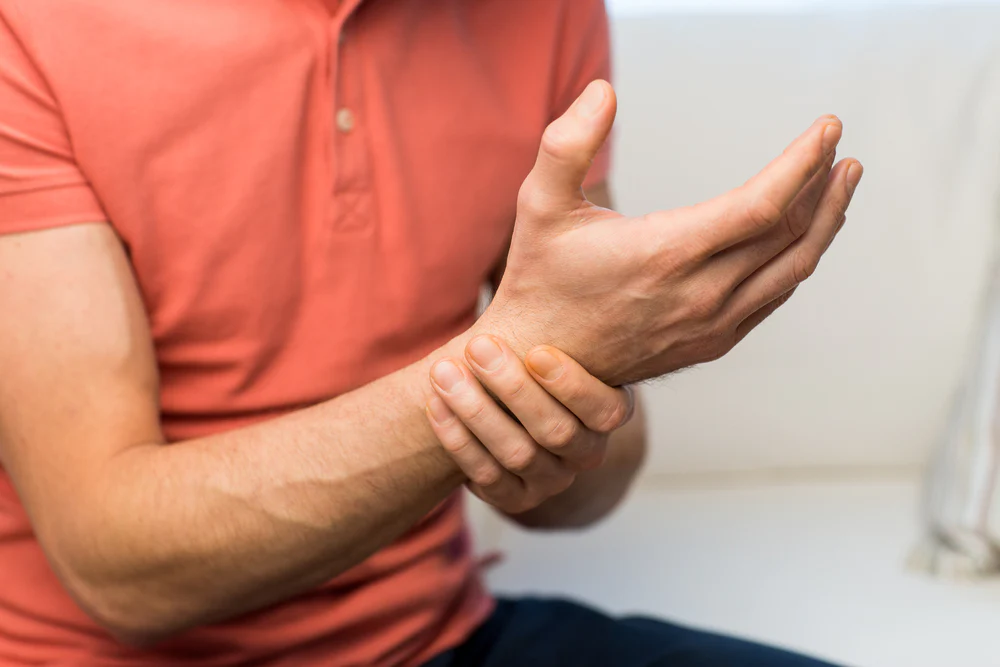Sleep Disorders and Conditions
When your Arm Falls Asleep: Causes and Treatments
It’s not uncommon to wake up to the sensation of your arm “falling asleep.” The feeling of tingling or numbness, also known as paresthesia, is often harmless and goes away quickly. However, if the sensation lingers for an extended period or occurs with other symptoms, it may indicate an underlying health issue. In this blog, we explore the possible causes of paresthesia and what treatments are available.
Causes of Paresthesia
The most common cause of paresthesia is simple: pressure on the nerve from poor positioning or lying on your arm. When pressure is applied, blood flow to the nerves is restricted, leading to the sensation of pins and needles.
More chronic cases of paresthesia can be an indicator of an underlying medical issue, including:
Vitamin B deficiency: Older adults, vegans, people who drink alcohol excessively, and those with pernicious anemia may experience paresthesia due to a lack of vitamin B.
Fluid retention: Swelling throughout the body, caused by high salt intake or fluctuating hormone levels during menstruation, can disrupt circulation and trigger a tingling sensation.
Carpal tunnel syndrome: This condition occurs when the median nerve in the hand is compressed or pinched, often due to repetitive motions.
Peripheral neuropathy: This nerve damage is commonly caused by persistently high blood sugar levels in people with diabetes.
Other conditions: Central nervous system disorders like multiple sclerosis and stroke, as well as tumors or growths in the brain or spine, can cause paresthesia.
When to seek medical attention
If paresthesia persists beyond a brief period of readjustment or is causing significant pain or discomfort, it's important to consult a doctor. Urgent medical attention is necessary if paresthesia occurs with muscle weakness, intense pain, vision problems or loss, difficulties with speech or coordination, or extreme dizziness.
Treatment options
If the paresthesia is infrequent, repositioning yourself or using an over-the-counter pain medication or cold compress may be enough to relieve the sensation. However, if paresthesia occurs regularly or is caused by an underlying condition, a doctor may recommend specific treatments.
For carpal tunnel syndrome, wrist support wraps and exercises can soothe the affected nerve. In more severe cases, cortisone shots or surgery may be necessary.
In conclusion, paresthesia, or the feeling of tingling or numbness in the limbs, is often harmless and temporary. However, chronic or persistent paresthesia can be a symptom of an underlying medical issue. Knowing the causes and treatments of paresthesia can help you seek proper medical attention and care.
Sleep Disorders and Conditions
Sleepless in Psychiatry: Unraveling the Role of Sleep in Neuropsychiatric Illnesses
Sleep Disorders and Conditions
When Sleep Disorders Clock In: Insomnia’s Impact on Productivity of Young Adults
Sleep Disorders and Conditions
Why Does My Body Twitch When I Sleep
Sleep Disorders and Conditions
Hypnic Jerk: Why Do I Twitch in My Sleep?
Sleep Disorders and Conditions
Why Do We Twitch In Our Sleep? The Mystery of Hypnic Jerks Unveiled
Sleep Disorders and Conditions







